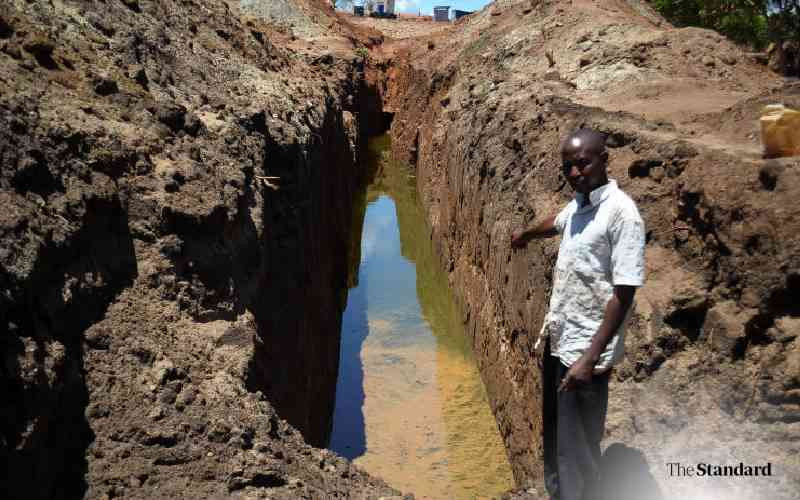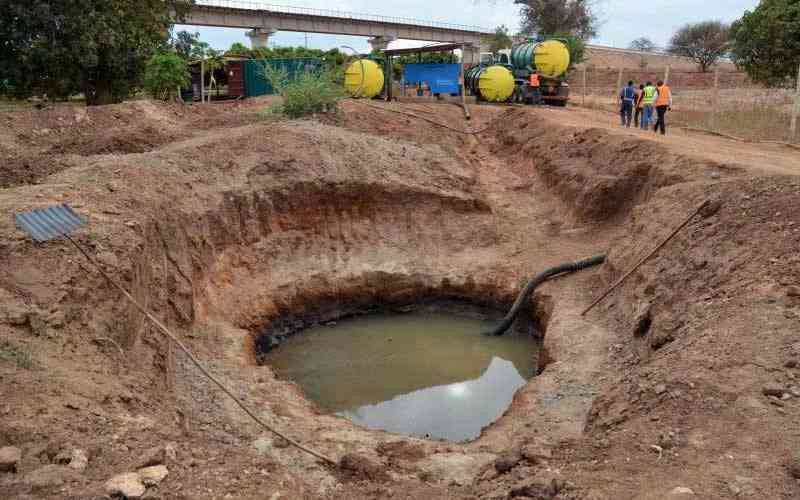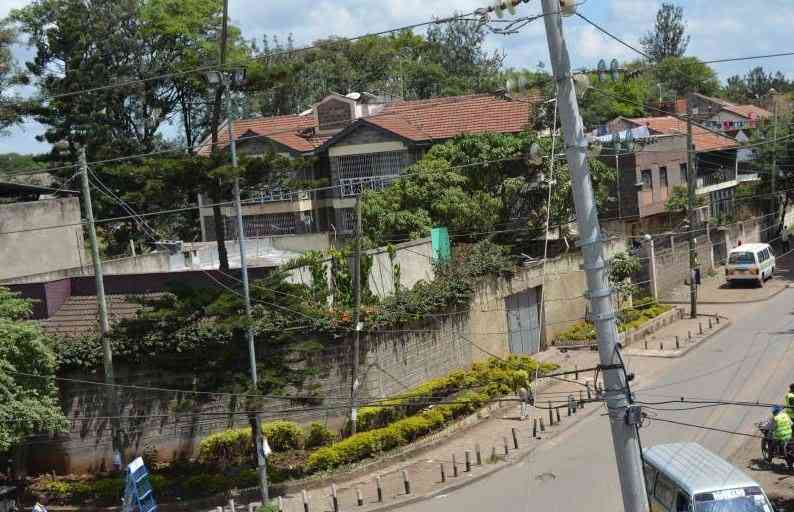
The court has ordered Kenya Pipeline Company and the National Environment Authority (Nema) to pay residents residing at the Thange River Basin over Sh2 billion as damages for oil spillage.
Judges Christine Ochieng, Theresa Murigi, and Annet Nyukuri of the Environment and Land Court in Makueni ordered the two agencies to pay the 3,075 locals Sh2,118,831,676 within 120 days.
They further ordered KPC to restore the damaged land, soil surface, and underground water and the entire Thange River Riparian habitat to its original status.
KPC was also ordered pay Sh900 million to NEMA should it fail to restore the environment to its original status.
NEMA, using the funds, shall then facilitate the restoration of the Thange River Riparian habitat and file a report in court within the 120-day period.
Residents sued the two agencies following a leakage in KPC’s old pipeline that occurred on May 12, 2015.
They accused KPC of failing to diligently maintain and keep the pipeline transporting petroleum in good working condition and that it failed to detect the damaged pipeline in good time to avoid the said damage.
The residents noted investigations carried out by the Water Resources Management Authority (WRMA) and NEMA convicted KPC for polluting the environment and issued sanctions that it should be held liable for the effects of the oil spillage.
They noted that WRMA on October 27, 2015, issued a restoration order against KPC calling for immediate action to prevent pollution to water and to take remediation and restoration actions.
Further, on December 17, 2015, NEMA issued a restoration order to KPC requiring it to put in place measures to prevent any further pollution and remediation of the affected area.
They said KPC admitted liability through their conduct of partial payment of claims for the crops and livestock as well as their willingness to settle the claim for loss of health and treatment upon medical evidence by the residents.
The residents said they were displaced from their land and water, which they relied on for their livelihoods, hence subjected to psychological torture, including cruel and degrading treatment.
They asserted that the oil spill polluted their soil and water, making it worthless, hence violating their right to own and occupy their parcels of land.
They insisted that their health is at risk due to contaminated water and having lost their livestock and livelihoods.
Stay informed. Subscribe to our newsletter
The residents claimed that although they were paid as per the discharge vouchers, the payment was through fraud, misrepresentation, coercion, and unorthodox means, which were used to force them to sign the said discharge vouchers.
KPC and NEMA opposed the petition. KPC said it repaired the leaking pipeline and informed NEMA as well as other relevant government agencies adding that there were no injuries or fatal accidents affecting humans or livestock.
NEMA noted that it assessed the extent of the oil spill and issued an Environmental Improvement Order requiring KPC to fix the leakage point and come up with a contingency plan for managing the oil spill issue.

NEMA termed the residents’ accusations against it as baseless and aimed at tainting its image.
Kenneth Koreje, the Principal Water Quality and Pollution Control Officer at WRA, informed the court that after analysis of water samples that in certain areas there were high concentrations of oil and grease.
The damage was more in areas where the spill occurred, while in areas far from the spill site, concentration was either low or not present.
Dr Jefferson Kaloki Nthanga, a Veterinary Surgeon, said a post-mortem on the livestock revealed that the ruminal contents of the sheep smelled of oil.
The court noted that it was not in dispute that there was an oil spillage within the Thange River Basin on May 12, 2015, wherein a pipeline leak occurred at 256.9 Kilometres from Mombasa in Thange, Kibwezi, Makueni County.
The oil spillage contaminated the soil, air, river water, surface water, borehole water and negatively impacted animals, plants and human health.
“From the evidence tendered by the parties herein, it is clear that there was pollution of the environment in Thange River Basin, which included soil, surface and underground water, air and biota as a result of the oil spillage occasioned by KPC,” read the judgment in part.
NEMA, the court noted, violated its obligations both to the environment and the residents.
“We have considered the evidence on record, including the reports from experts, which clearly show that the land within the Thange river basin was polluted to the extent that crops were not fit for human and livestock consumption."
"Further, the oil spillage affected the soil, crops, water, and livestock, thereby curtailing their livelihoods. We hence find that the 1st respondent (KPC) violated the petitioners’ right to property,” ruled the court.
The court noted that KPC, being the principal polluter, was aided by NEMA, which failed to continuously monitor and audit KPC’s pipeline, besides failing to order immediate remediation after the oil spill.
NEMA, the court said, was a secondary polluter and apportioned liability at the ratio of 80: 20 between KPC and NEM, respectively.
The court said KPC and NEMA violated Constitutional obligations imposed upon them by the Constitution, adding that the discharge vouchers signed by the residents for crops and livestock are unconstitutional.
The court ordered KPC and NEMA to pay the residents general, punitive, and special damages.







